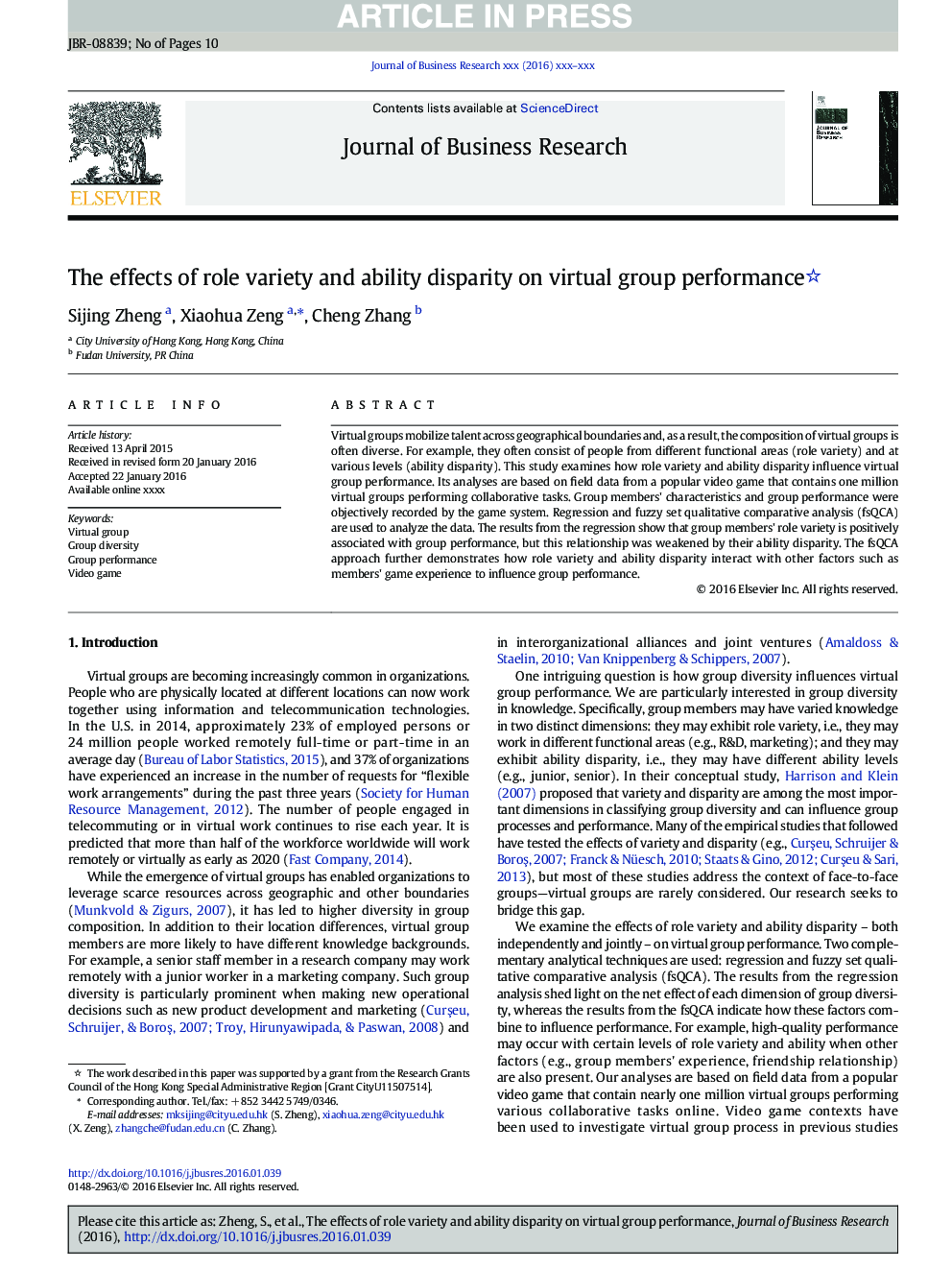| Article ID | Journal | Published Year | Pages | File Type |
|---|---|---|---|---|
| 10492515 | Journal of Business Research | 2016 | 10 Pages |
Abstract
Virtual groups mobilize talent across geographical boundaries and, as a result, the composition of virtual groups is often diverse. For example, they often consist of people from different functional areas (role variety) and at various levels (ability disparity). This study examines how role variety and ability disparity influence virtual group performance. Its analyses are based on field data from a popular video game that contains one million virtual groups performing collaborative tasks. Group members' characteristics and group performance were objectively recorded by the game system. Regression and fuzzy set qualitative comparative analysis (fsQCA) are used to analyze the data. The results from the regression show that group members' role variety is positively associated with group performance, but this relationship was weakened by their ability disparity. The fsQCA approach further demonstrates how role variety and ability disparity interact with other factors such as members' game experience to influence group performance.
Keywords
Related Topics
Social Sciences and Humanities
Business, Management and Accounting
Business and International Management
Authors
Sijing Zheng, Xiaohua Zeng, Cheng Zhang,
